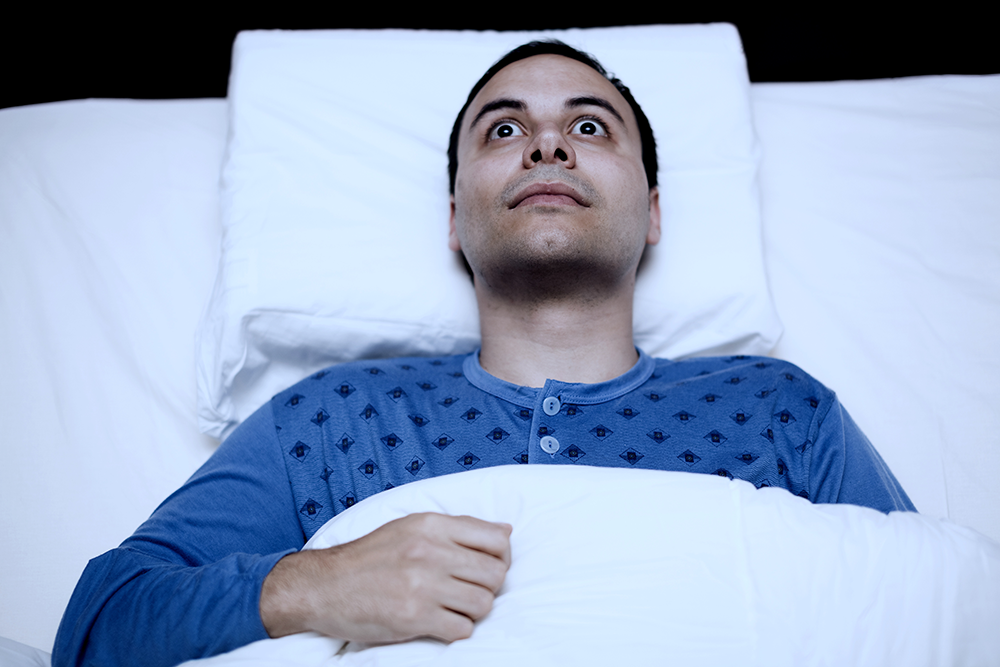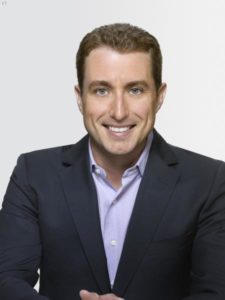Sleep Deprivation and Heart Disease

A 2011 study by the American Heart Association found poor quality sleep to increase high blood pressure risk, which can then lead to heart disease.
I had the pleasure of collaborating with leading alternative health expert Bryce Wylde. Bryce Wylde is a highly knowledgeable and respected natural healthcare clinician whose specialty is homeopathy, clinical nutrition, supplementation, and botanical medicine and whose focus is routed within functional medicine.
In this three-part series, Bryce shares information ranging from the connection between sleep deprivation and heart disease to the diagnosis of sleep apnea and the impact of snoring, as well as steps you can take to ensure a quality nights sleep.
Sleep deprivation
Sleep is measured physiologically by electrical changes in the brain. Sleep is quantified in the amount of time spent in or out of REM (Rapid Eye Movement). The duration from the beginning of non-REM to the end of REM is an important aspect of your sleep pattern. This is referred to as sleep architecture. Sleep architecture varies widely across species, and is thought to be significantly influenced by genetics. But no matter your eye or hair color, or where you’re from, you’ve heard of the general importance of 7-8 hours for optimal health. There is a reason for that. For optimal sleep, it is necessary to experience full and uninterrupted sleep cycles. It takes the average person about 90 mins to get through one full sleep cycle. Sleep research has concluded that we need 4-6 cycles per night to feel our best. Do the simple math and we need 7-8 hours. But accomplishing optimal sleep isn’t as easy as clocking 8 hours on your pillow.
Science has previously shown that those of us who are regularly sleep deprived or have interrupted sleep – especially those of us who snore – are more likely to have high blood pressure, diabetes and narrowed blood vessels. Each of these can decrease blood flow inside the brain. Brain cells require ample oxygen and sugar. Without ideal blood flow to the brain this will affect its ability to work properly and recall information. To boot, during sleep you can strengthen memories and practice skills you learned while awake in a “virtual” environment.
Sleep deprivation, inflammation, and heart disease
Just like food, too much or too little sleep is associated with a shorter lifespan. A recent study in collaboration between the University of California and the American Cancer Society, was published in the Archives of General Psychiatry which included more than a million participants over age 30. It found that people who slept for eight hours or more, or less than four hours, had a significantly higher death rate than those who managed six or seven hours a night.
Sleep deprivation and heart disease are connected by inflammation. Inflammation is a medical buzz term of the day for a reason. It is the underlying cause linked to the most prevalent illnesses plaguing modern society: heart disease, stroke, diabetes, arthritis, cancer and premature aging. Research indicates that people who get six or less hours a night have higher blood levels of inflammatory protein – known as C-reactive protein (CRP) and interleukin-6 (IL-6) – than those who get ideal amounts. This means that if you don’t get quality sleep, you are more likely to have high blood pressure, elevated risk of heart disease, and you are basically at risk for any and all diseases with an underpinning of inflammation. In fact, research published in the American Journal of Epidemiology from the London-based Whitehall II study showed that each hour per night decrease in sleep duration increased both CRP and IL-6: markers of inflammation associated with risk of heart disease.
In addition to inflammation risk, if you don’t get an appropriate amount of sleep, you are unlikely to recall as effectively. In addition to making memories stronger, your brain appears to reorganize memories better with a good sleep. Scientists think this may result in more creativity. Researchers at Harvard University found that people seem to strengthen the emotional components of a memory during sleep, which may help instigate the creativity.
Sleep problems impact millions
About 70 million Americans suffer from sleep problems. If you suspect you may have a sleep disorder, a sleep study at an accredited sleep center is the best way to find out. A sleep study would include a sleep diary to track your sleep-wake pattern, your complete medical history and a physical examination. If your specialist thinks you may have obstructive sleep apnea (OSA), a hypersomnia such as narcolepsy or a parasomnia such as sleep walking or nocturnal eating, then he or she should recommend a sleep study. In many cases, the physician will recommend a home sleep apnea test if he or she suspects you have sleep apnea.
A standard in-lab sleep study (otherwise known as a polysomnogram) records information that enables the sleep physician to evaluate the sleep stages and their sequence during the night. The in-lab sleep study records EEG activity, eye movements and muscle tone. The EEG data tells us how quickly an individual falls asleep. Airflow through the nose and mouth is recorded to figure out if there are abnormalities to help us determine if sleep apnea is present. The simultaneous recording of heart rate, oxygen saturation, airflow flow and respiratory effort enables us to analyze the types of breathing abnormalities present and their impact on oxygenation, cardiac function and sleep quality.
The benefits of a good nights sleep
Besides all the physical health benefits, sleep pushes the emotional reset button. When sleep is disrupted or inadequate, it can lead to increased tension, vigilance and irritability. In fact, an inability to sleep – or getting too much – is one of the key signs of clinical depression. Having a sleep disorder does not in itself cause depression, but chronic sleep deprivation does play a role.
If you’re an athlete, improved sleep quality may be one simple way to improve your performance. And you may need a lot more than the average person! A Stanford University study found that college football players who tried to sleep at least 10 hours a night for seven to eight weeks improved their average sprint time, had less daytime fatigue and more stamina.
If you’re a parent, here is one of the most important findings: A recent study in the Journal of Pediatrics discovered that children who got less than eight hours of sleep a night were more likely to be hyperactive and inattentive, the hallmark of ADHD. And a major underlying cause? Something you’d never guess: snoring! The reality is that children between the ages of 10 and 16 who snore or have sleep apnea and other related sleep disorders are more likely to have problems with attention and learning, according to a recent study in the journal Sleep. The result is an inability to learn and remember what is taught. As you would assume, this goes equally for adults.
Drs. Chris and Kara Mohr developed the 21 Days to Better Sleep program. I highly recommend it. Their videos with instructions are engaging and the content can be put to good use so you achieve quality sleep each night. Learn more and purchase the program here.
All the best,
Lisa Nelson RD
Part 2: The Effects of Snoring Go Beyond Heart Disease
Part 3: How to Obtain a Quality Nights Sleep for Optimal Heart Health
Biography: Bryce Wylde, BSc, DHMHS, Homeopath
 Known as a leading alternative health expert, Bryce Wylde is a highly knowledgeable and respected natural healthcare clinician whose specialty is homeopathy, clinical nutrition, supplementation, and botanical medicine and whose focus is routed within functional medicine. Bryce holds a bachelor of science honors degree in Biology and Psychology and a Diploma in Homeopathic Medicine and Health Sciences.
Known as a leading alternative health expert, Bryce Wylde is a highly knowledgeable and respected natural healthcare clinician whose specialty is homeopathy, clinical nutrition, supplementation, and botanical medicine and whose focus is routed within functional medicine. Bryce holds a bachelor of science honors degree in Biology and Psychology and a Diploma in Homeopathic Medicine and Health Sciences.
Wylde began his official on-air television hosting career with CTV in early 2008 starting on the CP24 news channel with his own hour-long highly rated weekly television show,Wylde on Health. Wylde on Health has featured interviews with international experts including Dr. Mehmet Oz, Dr. Andrew Weil, CNN’s Dr. Sanjay Gupta, Dr. David Suzuki, and Dr. Deepak Chopra to name a few. Wylde has all of his guests – local and international – weigh in on and share their views and opinions on alternative, complementary, and integrative approaches to health and wellness while also fielding live calls from viewers.
Prior to his own show and over the last decade, Bryce has been a regular expert guest on many national and international shows including more recently The Dr. Oz show as a regular contributor and member of the medical advisory board. He has frequently appeared on CTV’s Canada AM, The Marilyn Denis Show, CBC’s Steven and Chris, The Discovery Channel, W Channel and ABC’s Good Morning America Health to name a few.



